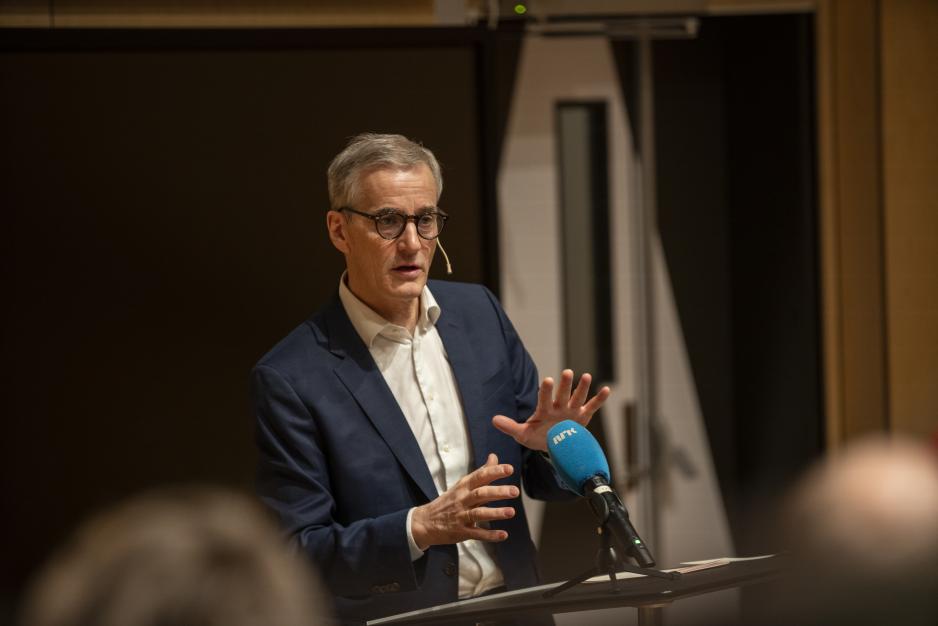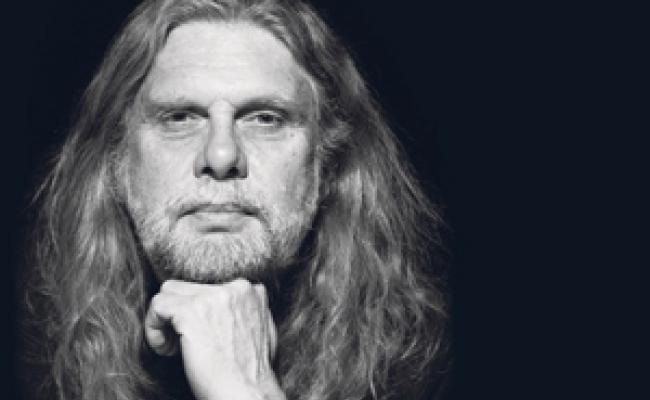Arne O. Holm says Not to Ruin the Mood for You, but There Might Be War

"The fact that war and confrontation once again are possible on our continent is simply discouraging. However, it might happen”, said Norwegian PM Jonas Gahr Støre at his Christmas press conference. (Archive photo: David Jensen/UiT)
Commentary: “And I would like to close with this”. Norwegian PM Jonas Gahr Støre looks up from the manuscript and into the TV camera. The PM has just finished a brutal run-through of the state of the country in which the pandemic and an energy crisis are the main ingredients, yet he has more on his heart.
“Not to create a more worried Christmas”, is how he starts closing.
It is a tradition for the country’s prime minister to run go through the state of the country with a separate press conference just before Christmas, and there is no exception for recently appointed prime ministers with gloomy messages. However, just as I thought it could not get worse, Jonas Gahr Støre showed that his main concern was elsewhere; not with the ravaging pandemic and people freezing because of high electricity prices.
Not since 1989
“Entering 20222, we face a European security policy situation that has not been graver since 1989”, Jonas Gahr Støre said and continued:
“The fact that war and confrontation once again are possible on our continent is simply discouraging. However, it might happen in and around the Ukraine, with a violent Russian arming of the region. The government takes this most seriously and has this as an important part of its overall policy. Keeping Norway safe in facing challenges both along the infection axis and also the security axis.”
For a moment I was baffled that he chose 1989 as his point of reference when illustrating the danger of war which he believes us to be facing. Most of us remember 1989, the year the Berlin Wall came down, as a democratic breakthrough both in Europe and other parts of the world.
I then wondered if I had misheard him. The questions following the PM’s speech were still about the pandemic and electricity prices. It is hard enough for the media to manage two “disasters” at one time. Pandemic and power will suffice for a long time.
The fact that there might also be room for another war on European soil was a bit too much.
Upon hearing his speech once again I realized I had heard him right, that the Norwegian PM, a former foreign minister, prepared us of a potential war in Europe.
Dialogue or war
His party fellow at NATO, Secretary-General Jens Stoltenberg, stressed dialogue last time he commented the conflict on the border between Russia and Ukraine.
I then wondered if I had misheard him
“Dialogue is even more important when tension runs high”, Stoltenberg said the other day.
Power prices go up and down and experts believe the vaccines will eventually end the pandemic. However, quite few of us are mentally prepared for war. Very few Norwegians have ever heard such a warning from Norway’s political leadership.
I can understand Jonas Gahr Støre’s need for bringing politics into his political message. Neither power prices nor a pandemic are entirely politic- free, however, in everyday life they are mostly about crisis comprehension and crisis management. Besides, these are issues where debate runs high in the public domain with large force.
The security-political threat we are facing nevertheless lives in the shadow of these events and is almost void of political debate.
Even at the PM’s Christmas press conference, the claimed threat of war is reduced to a kind of appendix to the general crisis management of the government.
The government is bombarded on an almost daily basis with questions related to electricity and pandemic. Any news show on radio or TV always introduces the critical questions from the opposition to the management of these two crises.
It is almost silent when it comes to foreign and security politics.
Silent about security politics
It is almost silent when it comes to foreign and security politics.
If we are to believe Støre’s analysis, and he is, after all, more experienced as foreign minister than as prime minister, Europe is facing a security policy crisis without it triggering a political debate.
That is grave.
It is not about whether or not I share Støre’s fears [of war] or not.
It is about us as citizens, not least we who live in the High North and share a border with Russia, being sidelined in what should be the most important political debate of the day.
For instance, this:
As allied military activity in the High North increases, Norway is also discussing an agreement with the USA that would give the Americans the right to set Norwegian legislation aside when operating on Norwegian soil.
Kind regards, Jonas Gahr Støre, Prime Minister
We know little or nothing about the reasons why American generals need such rights. Nor do we know why Norwegian politicians would consider relenting national sovereignty on Norwegian territory a good idea.
Pandemic fog
This is one out of several examples of how Norwegian security policy is gradually changing, yet also an example of how this change eludes public debate beyond what goes on in academic circles with a particular interest in the area.
I myself feel the pandemic wrapping its damp arms all the tighter around me. How it relegates political debate and only exceptionally allows itself to be disturbed by soaring or dropping electricity prices.
I remember from my childhood my disappointment at parents who wanted nothing else for Christmas but kind children and peace on earth.
That first desire is far too late for me to fulfil.
The second has, even in our part of the world, seen a renaissance.
Kind regards, Jonas Gahr Støre, Prime Minister
More from Arne O. Holm:
This commentary was originally published in Norwegian and has been translated by HNN's Elisabeth Bergquist.


